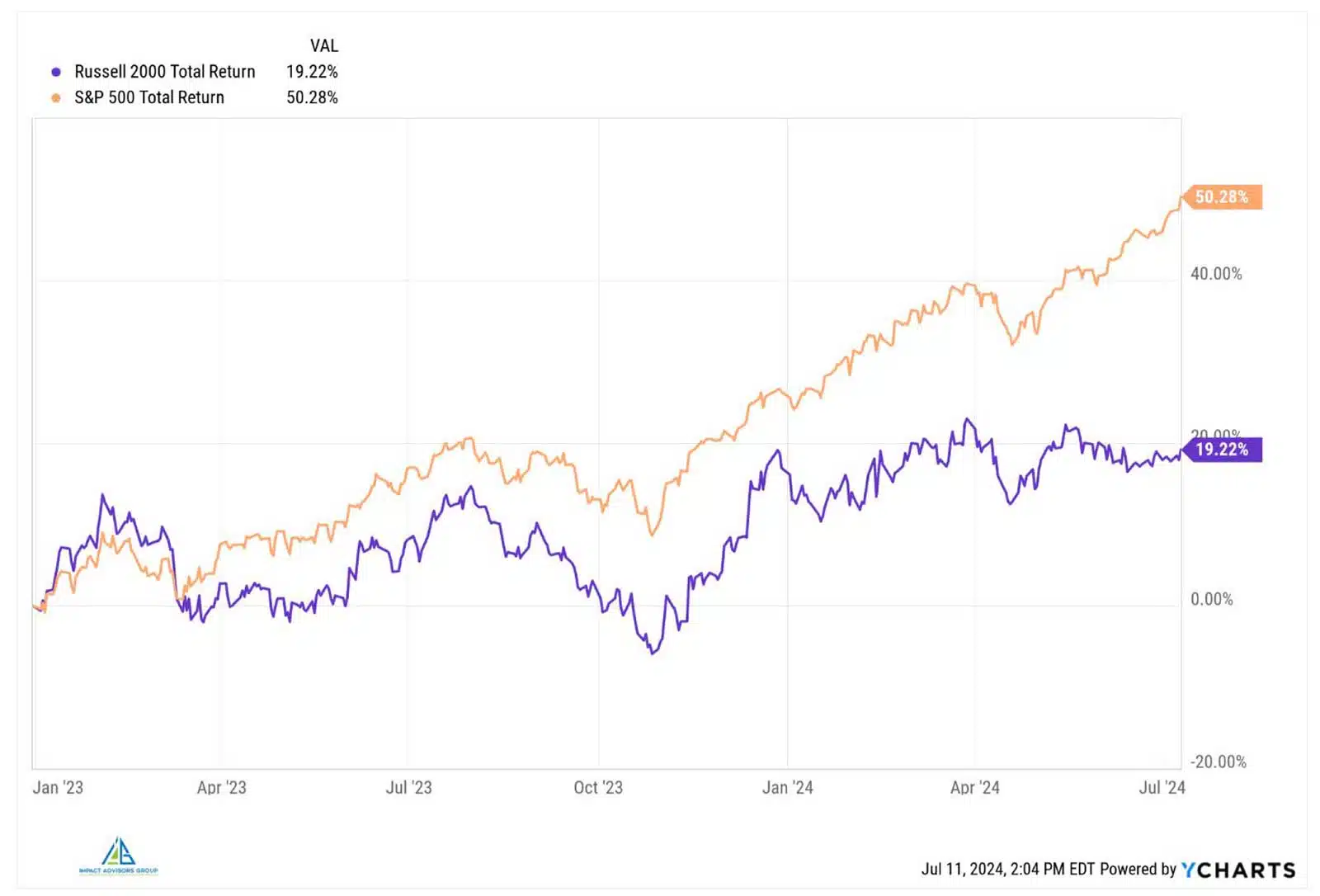
Financial Planning: Preparing for the Rising Costs of Long-Term Care
As the U.S. population continues to age, the demand for long-term healthcare is expected to rise steadily.

When we look at history, generally in a bear market riskier asset classes like Small Cap Stocks decline more than Large Caps. Then when the market recovers and shifts to a bull market phase, it is Small Caps that generally lead the rally. That definitely hasn’t happened recently. The chart below shows that Small Cap Stocks (represented by the Russell 2000 Index) have significantly lagged Large Cap Stocks for the last 18 months.

After a brief market correction in 2022 mega cap stocks have been the only game in town. We have discussed before how “The Magnificent Seven” stocks (Alphabet, Amazon, Apple, Meta, Microsoft, Nvidia, and Tesla) have dominated the returns of the S&P 500. In 2023, the S&P 500 returned 24.2% while the Magnificent Seven rose 75.7%. The bet on AI has pushed Nvidia’s stock price up 172% YTD, and 823% in the last 18 months. This concentrated market performance has caused a similar divergence between Large Cap Growth Stocks and Large Cap Value Stocks.

Economist Herb Stein said “If something cannot go on forever, it will stop.” Watching this performance trend is difficult for those of us who subscribe to evidence-based investing. (Evidence-based means evidence accumulated over 30 plus years, not just one or two.) To those of us who lived through the Tech bubble some 20 years ago, some of this looks extremely familiar. We know that the current trend of Growth/MegaCap/Tech outperformance won’t last forever. We just don’t know how long it will take for the market trends to change.

As the U.S. population continues to age, the demand for long-term healthcare is expected to rise steadily.

Alternative investments are evolving fast. Discover how IAG’s partnership with KraneShares enhances portfolios with strategic, evidence-based diversification.

As we gather with loved ones this Thanksgiving, it’s a perfect moment to reflect on gratitude, generosity, and the IMPACT we can make.

In October, the Federal Reserve cut its benchmark rate (the fed funds rate) by a quarter-percentage point to 4.00–4.25%.